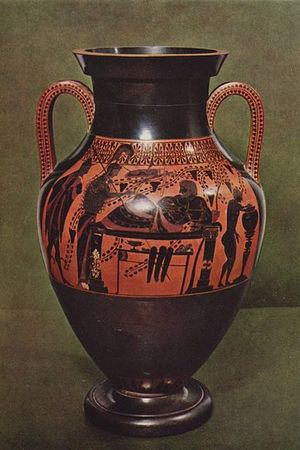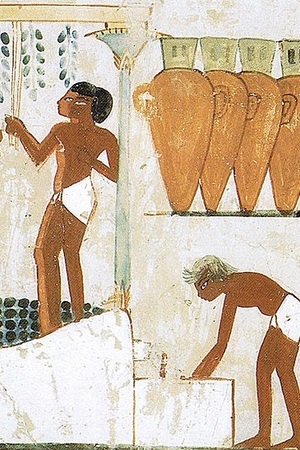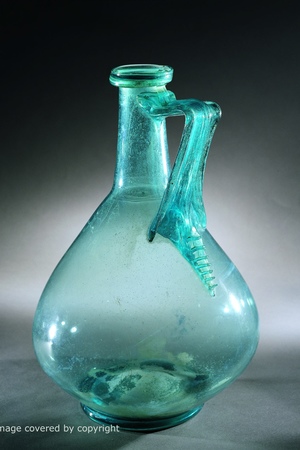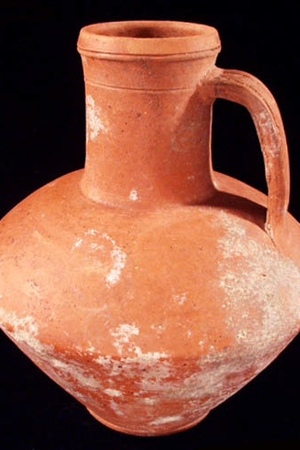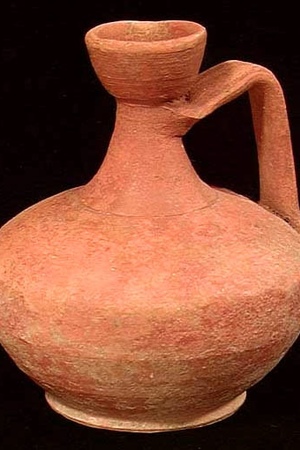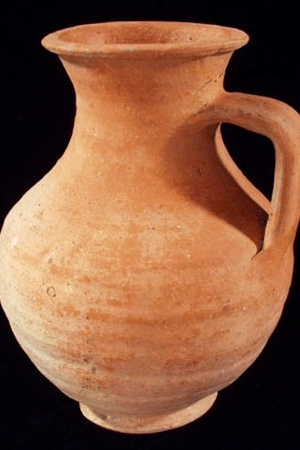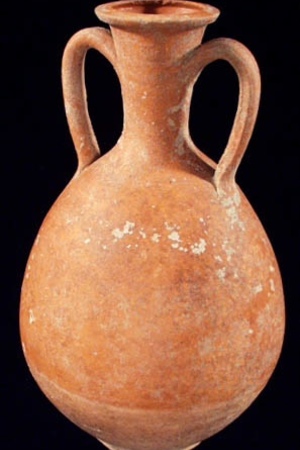Amphora
An amphora (from the ancient Greek ἀμφορεύς — amphorēus, literally meaning "carried on both sides") is a narrow-necked vessel with a wide body and two vertical handles, usually made of clay. Amphorae were widely used by the ancient Greeks, Romans, Etruscans, and Egyptians.
Amphorae with pointed bottoms are common, often with small feet or round bottoms, while flat-bottomed amphorae are rarer. In addition to ceramic amphorae, there are examples made of bronze, silver, marble, and glass. Ordinary clay amphorae were mass-produced and used for transporting and storing olive oil, grain, or wine. They were also used for burials, as ballot urns in voting, and for various ritual purposes.
Most pottery workshops stamped their marks on amphorae, which nowadays helps determine the time period of their production and even reconstruct trade routes in the Ancient World.
There are various types of amphorae, including table vessels (two-handled jugs), ceremonial ones (made of metal, glass, or decorated ceramics), transport amphorae, and storage amphorae. The unique shape of Etruscan amphorae allowed consumers in Greek, Roman, and Byzantine centers to identify their origin, the contents, and approximate price of the goods. Each center had its own standard volume. Amphorae up to 100 liters were typically buried in the ground near houses, while large, tall amphorae were used for transporting liquids. In Rome, amphorae with a volume of 26.03 liters (the ancient Roman cubic foot or the Greek "talent") were used for measuring liquids. The typology and classification of amphorae were developed by the German archaeologist Heinrich Dressel. The Russian archaeologist S. Yu. Monakhov made a significant contribution to the study of amphorae.
The term "amphora" is also used for two-handled painted vases of various purposes. The Panathenaic amphorae (named after the Panathenaic Games), filled with olive oil, were awarded as prizes in athletic competitions. The term "amphora" is sometimes applied to vessels of similar shapes found in other cultures as well.
Related topics
Literature
- Abramov, A. P. Greek Amphorae of the 6th-5th centuries BCE in the Northern Black Sea Region. University of Dmitry Pozharsky, 2020. 248 pages. ISBN 9785912442544.

 Gallery
Gallery






